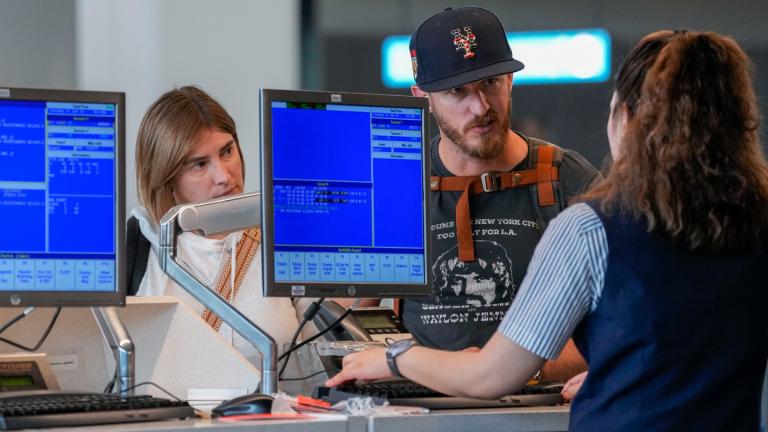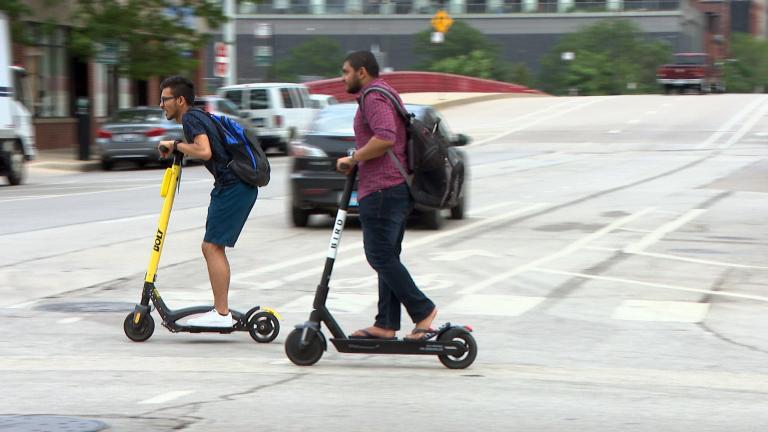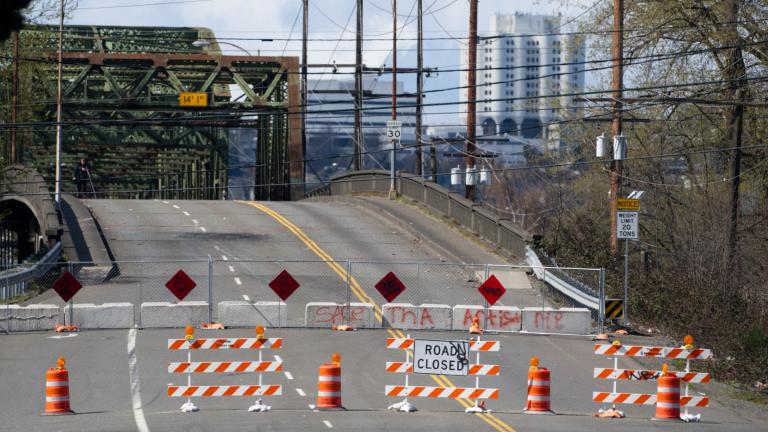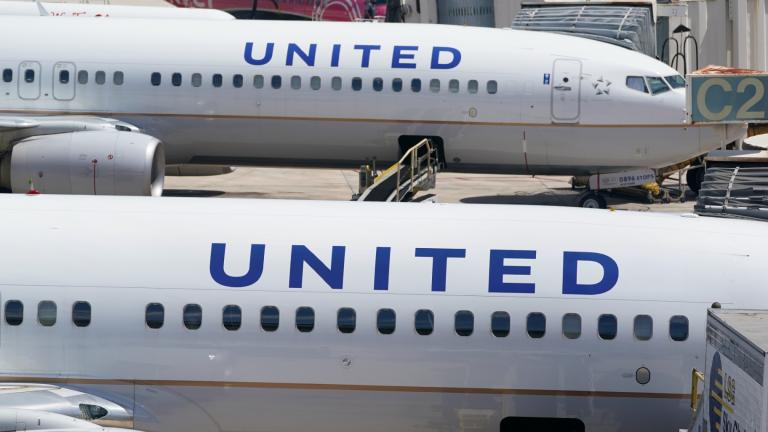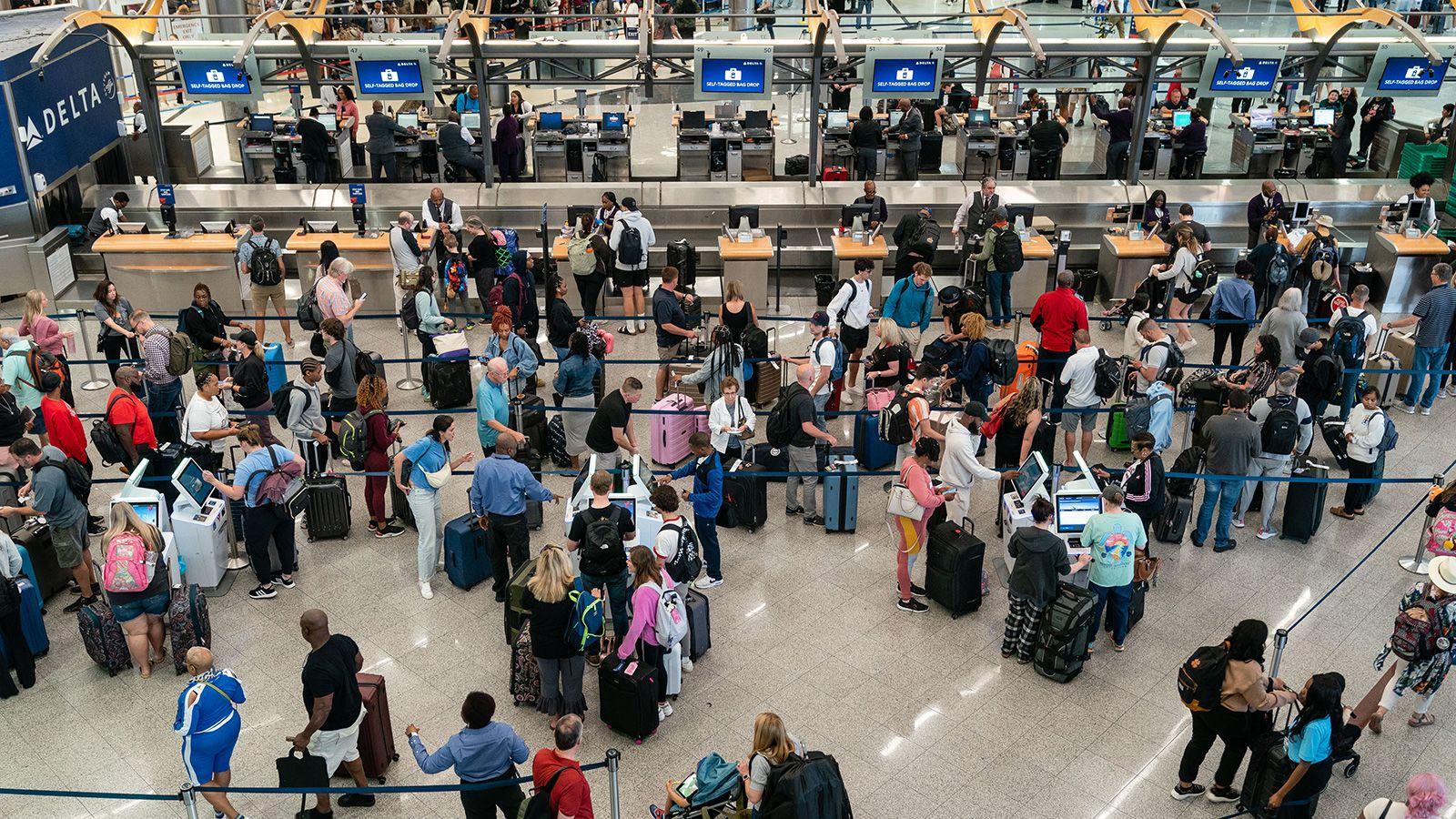
(CNN) — The U.S. aviation system is set for a record-breaking summer, with the Transportation Security Administration already reporting passenger volumes greater than pre-pandemic levels during the Memorial Day weekend. That holiday weekend was uneventful, but experts are concerned that things might not go smoothly all summer for a system that has seen many meltdowns in the past year and appears to be prone to more.
“We expect the summer travel season to be off the charts when it comes to demand,” says Geoff Freeman, president of the US Travel Association. “That’s great for the travel industry, but there’s no doubt that – as a country – we have underinvested in the aviation system for far too long. This type of demand will be an incredible stress test for it.”
President Biden announced in early May that he is pushing to bolster passenger protection and compensation for delays or cancellations, after the Department of Transportation saw airline passenger complaints rise 55% in 2022.
There are also mounting requests to more aggressively and comprehensively address the system’s bottlenecks, including obsolete technology and staffing issues.
“The FAA has acknowledged that it can’t handle this level of demand — that’s why they’ve asked the airlines to reduce capacity in some areas,” says Freeman. “They know that the investment in air traffic control, technology and individuals has been below the level it needs to be – and now we’re paying the price for that.”
Air Traffic Controllers
While the recent surge in air traffic for Memorial Day was handled smoothly, the next big challenge will be the days around the June 19 Juneteenth holiday.
One of the most pressing issues is a shortage of air traffic controllers – who handle the crucial task of guiding aircraft between and around airports – with a shortfall of about 3,000, according to Transportation Secretary Pete Buttigieg. As a result, the FAA asked airlines to reduce summer flights in the New York metropolitan area, where a key radar facility is only 54% staffed.
“Chronically low staffing has been a problem for a while,” says Paul Rinaldi, a former air traffic controller and vice president of the Global Air Traffic Controller Alliance. “We stopped training during COVID, and a lot of people retired. This does have a negative impact on the volume of traffic.”
The agency’s target is to hire 1,500 new controllers by the end of the year. “I applaud them for actually hiring,” Rinaldi says, though he points out that the number falls short of the FAA’s annual limit of 1,800 new hires. The plan is to hire in such numbers in 2024, bringing the total for the next two years to 3,300.
Hiring air traffic controllers is a laborious process that requires months of training and then up to three years of on-the-job experience before certification — a path that many applicants do not complete, according to Rinaldi.
And then there’s the issue of age: In the US, air traffic controllers are required to retire at the age of 56, and the FAA won’t hire anyone older than age 31, because they want candidates to have at least a 25-year career path.
“We have 1,200 fewer air traffic controllers today than we had 10 years ago,” says Freeman. “That’s not going to cut it. So we have to make an investment in people.”
Outdated Technology
The FAA’s problems don’t end at air traffic control. In January, a system outage brought domestic aviation to a standstill, causing thousands of cancellations and delays.
The affected system, which was set up in 1993, is called Notice to Air Missions (NOTAM). It’s used by pilots to become aware of issues that can affect the safety of a flight. A damaged file prevented it from working and there was no available backup.
“The FAA deserves to have more robust, more contemporary technology infrastructure,” says Henry Harteveldt, an aviation analyst at Atmosphere Research.
“Many systems date back several decades — not many of us have a 40-year-old computer at home right now, and it’s frightening that some of the technology systems that the FAA may be relying on potentially goes back that much.”
Could something like this happen again?
When asked about what steps the agency has taken to prevent that, the FAA directed CNN to a written testimony by acting FAA Administrator Billy Nolen to the Senate, from February 2023. “We are working to face the challenges in maintaining our systems, while keeping pace with new and emerging technologies and entrants,” he said, adding that modernization work on NOTAM is in progress and should be completed by mid-2025.
The FAA is also working on a multibillion-dollar program to overhaul its entire technology, called NextGen, which is expected to be fully deployed by 2030. However, the deciding factor in this arena will be funding.
“The debt ceiling negotiations in the US are going to cap spending in most departments, and the FAA is perennially underfunded,” says Harteveldt. “Not only does the FAA rarely get what it asks for in its budget, but one big problem is that part of the federal taxes that passengers pay on their airline tickets – which are intended to help fund the FAA – get siphoned to other projects, in other departments. The FAA will need to work with Congress to find ways to keep all of that money, or at least more than they are getting right now.”
Pilot Shortage
According to a report by consulting firm Oliver Wyman, there is a shortfall of around 17,000 pilots in North America, which will widen to 24,000 by 2026.
One way airlines have been trying to offset this is by operating fewer flights using larger aircraft.
“The regional airlines are operating far fewer of their 50-seat aircraft and focusing more on the 70- to 75-seat ones,” says Harteveldt. “And in a way that’s good because it reduces the number of pilots needed; but at the same time you have other airlines which have thousands of new aircraft on order for delivery over the next six to eight years.”
However, he adds, the industry has made a lot of progress in hiring pilots, flight attendants, mechanics and other workers in recent months. “The most critical group are the pilots, because there was a severe shortage last year. Airlines in the US have hired more than 10,000 pilots collectively,” he says, adding that there is also a discussion on whether the retirement age for pilots should be raised from the current 65 to as much as 67.
“Younger pilots don’t like the idea, because it obviously delays their ability to advance. Airlines see it as a temporary fix — it lets their pilots work longer, but these are also the pilots that are at the top end of the wage scale, so they’re the most expensive pilots for the airlines to have.”
Not everyone agrees that there is even a pilot shortage. Jason Ambrosi, who leads the Air Line Pilots Association (ALPA), the world’s largest airline pilot union, said in a written statement to the Senate in March that “There are more than enough pilots to meet US airline hiring demand” and that “airline pilot growth has increased each year since the pandemic.”
He added that training capacity has been the dominant pilot-related constraint on air travel, and that the displacement of pilots by carriers to cut costs has created considerable “attrition” and a significant training backlog.
Bad Weather
Perhaps the most critical factor in whether or not travel chaos will occur is outside of anyone’s control.
“The summer travel season will play out as well as Mother Nature allows it to play out,” says Harteveldt. “Weather accounts for at least two thirds of the delays and cancellations, sometimes more. If we have fewer storms this summer, then the airlines will operate better.
“However, if the storms are more frequent, or more intense, or they last longer – or even any combination of that – then we’re obviously going to see problems. The question is not how bad the problems will be, but how well the airlines will be able to recover.”
All eyes are on Southwest, which this past December was unable to manage a bad winter storm and suffered an operational meltdown that left 16,700 flights canceled and 2 million passengers stranded. “The challenge for some airlines, most notably Southwest, is whether they will have the technology systems in place to help them manage their operations when disruptions occur,” says Harteveldt.
Southwest has detailed an action plan to prevent similar incidents in the future, which includes an investment of $1.3 billion in technological upgrades. However, it might take some time before all of these are deployed.
“What really concerns me,” Harteveldt adds, “is that with so many flights now being booked full, airlines have very little wiggle room to help people who are stranded when delays or cancellations occur — even when things are working well.”
Close Calls
Early 2023 has been marred by an alarming string of near-misses between planes on US runways, with incidents in Boston; Burbank, California; Austin, Texas; Honolulu; New York; Sarasota, Florida; and at Reagan National Airport outside Washington, DC.
In one of the closest of these close calls, a FedEx cargo plane attempting to land in Austin came within 100 feet of a Southwest jet that was taking off from the same runway.
In March, the FAA organized a special travel safety summit to discuss the issue, and in late May it announced an investment of $100 million across 12 US airports to improve taxiways and lighting, and hopefully reduce the risk of further “runway incursions.”
“It is alarming,” says Harteveldt. “I have airline pilot friends who have told me that their anxiety is much higher now about flying in and out of certain airports, about even taxiing at certain airports. Some pilots have told me that they will now confirm and then confirm again that they’ve been given permission to taxi across an active runway.”
None of the incidents caused any damage or injuries, but the National Transportation Safety Board is currently investigating six of them.
What Can We Do?
One of the reasons why the FAA struggles to handle high volumes of traffic is airline scheduling, according to Harteveldt.
“Some airlines publish their schedules almost a year in advance, but some don’t until just six months before a flight departs. So the FAA is playing catch up as they figure out if they have enough staffing,” he says, adding that the reason airlines are coy with schedules is that it’s sensitive business information that can affect their bottom line, for example prompting a competitor to increase certain flights at a certain time.
“It would be much better if there was a legal way for airlines and the FAA to sit down and exchange information in a way that is fair, where the airline’s sensitive information is kept confidential,” he adds.
The FAA’s funding and operating authority is expiring this year, and will need to be reauthorized by Congress as cyclically happens. According to Freeman, this is a major opportunity to demonstrate the nation’s commitment to building a world-class aviation system, and how critical it is to the entire economy.
As for this summer, “pack your patience,” he says. “We’ve already seen this Memorial Day weekend just how busy the airports are. But that isn’t limited to the United States — we all saw the challenges around the world with baggage last year and demand at all-time highs that overwhelm systems globally.”
However, he adds, you shouldn’t lower your expectations. “We as a traveling public need to demand policymakers do better. We encourage travelers to make their voice heard, and say that they want to see greater investment, a more efficient system and a real commitment that hasn’t been there in the past.”
The-CNN-Wire ™ & © 2023 Cable News Network, Inc., a Warner Bros. Discovery Company. All rights reserved.


